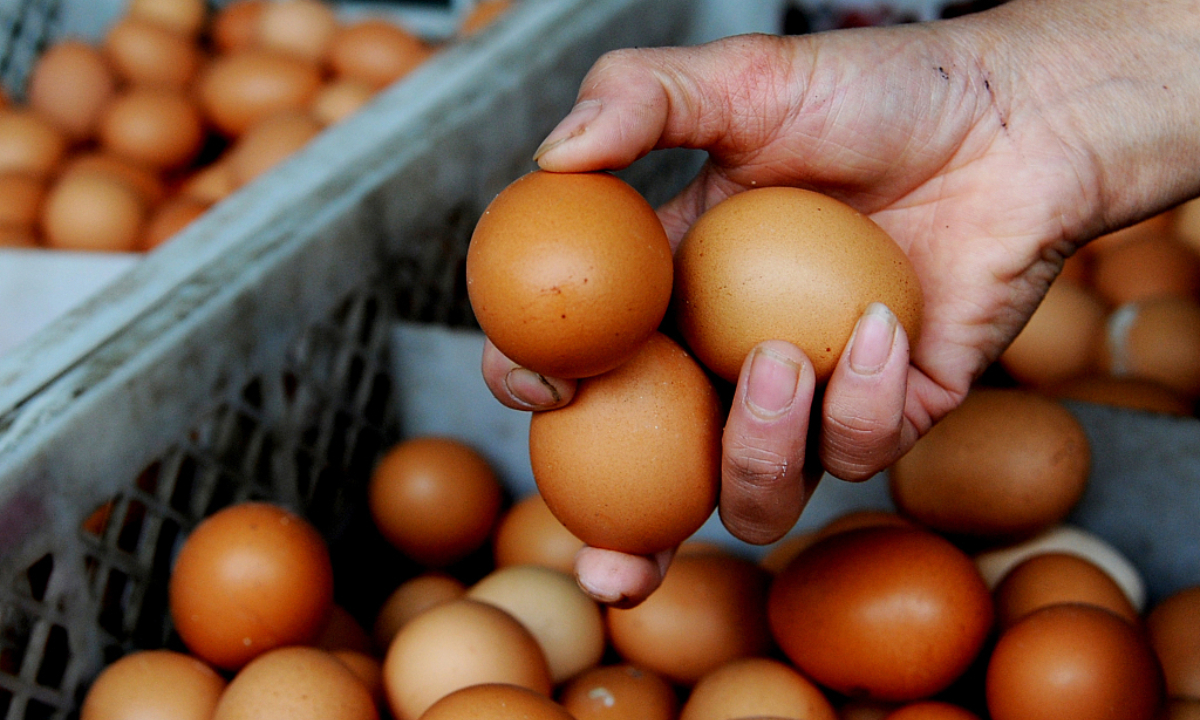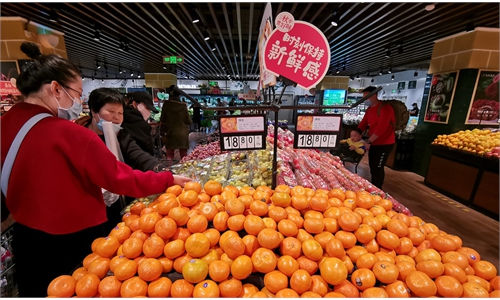China has ample supply of eggs despite global market shortage in 2023 caused by bird flu: agricultural experts

Eggs Photo: VCG
The price of eggs in China has remained stable in the face of a global egg shortage which flared up since late 2022. Experts said that country's quick response targeting the bird flu and its rapid food transport system have kept supermarket shelves and local stores well stocked.
Zhu Ning, a deputy research fellow from the Institute of Agricultural Economics and Development under the Chinese Academy of Agricultural Sciences, told the Global Times that China's average monthly number of egg-laying hens reached 1.08 billion in the first quarter of 2023, a relatively high level.
China's National Bureau of Statistics on Tuesday revealed the consumer price index (CPI) in March was marginally up by 0.7 percent year-on-year, in which prices for eggs rose 7.8 percent year-on-year.
Zhu noted that high price of eggs and the healthy profit margins since March 2022 has helped maintain market stability.
A representative surnamed Shen from a medium-size hatchery in North China's Hebei Province told the Global Times that his farm is operating normally, thanks to low costs for chicken feed. He noted that relevant authorities and companies have been focusing on preventing bird flu and that the egg supply in China is unlikely to be affected by the global shortage.
Zhu believed that spread of bird flu from European countries and the US to Japan and other Asian countries was the main reason behind the tight egg supply in the world.
Some media reported that a global egg shortage is affecting the market in the Japan, the US and Europe. The Kyodo News cited data from Japanese Ministry of Agriculture, Forestry and Fisheries saying that a total of 17.01 million hens had been culled since October 2022 due to bird flu, dragging down the national egg-laying hens by 10 percent, and affecting the egg supply to Japanese convenience stores and restaurants.
In the US, a total of 43 million hens were culled in the past 12 months ending on March 14, 2023, which lifted the price of American eggs by 55 percent in March year-on-year, said the United States Department of Agriculture. The European Union has culled nearly 50 million birds.
China is world's largest egg producer and consumer. A report sent from Chinese financial firm Mailyard Futures to the Global Times showed that the country produced 31 million tons of eggs in 2022, with a self-sufficiency rate of 100 percent.
In early April, China's domestic market egg price stood at 4.36 yuan ($0.63) per 500 grams, declining by 3.34 month-on-month. "Stable egg production capacity and efficient logistics system in China work together to secure domestic egg supply," said Zhu.
"China exports about 100,000 tons of eggs each year, and last year it exported 140,000 tons, which only accounted for 0.5 percent of the country's overall output," Zhu said.
Zhu added that the global egg shortage may last through 2023 and may extend to the first quarter of 2024 because of the bird flu. However, China's abundant egg production was unlikely to be a source of relief for other countries facing chronic shortages.



